African literature, as it’s called, is enjoying a bit of a moment, with the western media regularly heralding splashes, rebirths, dawns. When I published my novel Ghana Must Go in 2013 I joined a list of writers that, on the face of things, appears encouragingly long. There are my fellow Nigerians Chinelo Okparanta, Chimamanda Adichie, Helen Oyeyemi, Helon Habila, Chris Abani, Teju Cole; the Kenyans Yvonne Owuor, Binya Wainaina, Mukoma Wa Ngũgĩ; the Ethiopians Maaza Mengiste, Dinaw Mengestu; the Sierra Leoneans Aminatta Forna, Olufemi Terry; the Zimbabweans Petina Gappah, NoViolet Bulawayo. It seems that African literature is the literary dish du jour, like the Indian (more Lahiris!) and Middle Eastern (more Hosseinis!) dishes before.
Of course, one could argue that 50-odd writers emerging from a continent of 1.1 billion people represent more of a trickle than a wave. So, too, might one question the media’s fondness for these little ethnic trends. (When did the white male novelist’s moment begin, and when will it end?) One might pause to wonder what so-called African novels have in common: does the commercial category function as a creative one, as well? The Scottish-born novelist Aminatta Forna has asked why her novel The Hired Man, set in Croatia, is sometimes found in the “African section” of bookshops. What of Helen Oyeyemi’s Boy Snow Bird, set in New England? (Oyeyemi is British; her family moved to the UK when she was four.) Or Teju Cole’s Open City, much of which takes place in Manhattan? Are these African works?
When I warn against grouping African writers together, it is not because I lack pride in the continent’s literary tradition, but rather that I am conscious of the west’s tradition of essentialising African subjects. As Evan Mwangi put it in the Kenyan Daily Nation, artists who resist such categorisation do so because “they shouldn’t be vacuum-packed as ethnic writers in the metropolitan academy, which has perfected these tendencies whenever it encounters any writing that is not white”.
More interesting to me than the media’s approach to African writers is the discourse among those writers themselves. It was 1963 when Chinua Achebe, reflecting on a conference of African authors, wrote: “There was [one] thing that we tried to do and failed – and that was to define ‘African literature’ satisfactorily. Was it literature produced in Africa or about Africa? Could African literature be on any subject, or must it have an African theme?” The same year Nigerian poet Christopher Okigbo (in)famously announced himself a writer, simply a writer, not an African one. Thirty years later, the first African winner of the Booker prize, asked to describe himself, said: “I think Ben Okri is a writer who works very hard to sing from all the things that affect him. I don’t know if he’s an African writer. I never think of myself in terms of any classification. Literature doesn’t have a country.”
It may not, but publishers do. And two decades on, the same tensions have arisen again, exacerbated by the fact that so much African literature is published outside Africa. If no one can quite say what African writing is, many have views on what it should be: what it must say, what it mustn’t say, who can write it, who should read it. At the heart of this increasingly noisy debate lie, I think, three central questions: who is an African writer, what should she write and for whom is she writing?
1. Who is an African writer?
In 2013, Tope Folarin won the 14th Caine prize for African writing, the first American-born writer to do so. His victory suggested that Africans in the diaspora now qualified as African writers, a question of distracting importance. The weekend before the ceremony, the Ethiopian-American writer Maaza Mengiste wrote a marvellous piece for the Guardian called “What makes a ‘real African?’”. She noted: “On the shortlist of five, three writers live in the US and at least one has US citizenship. The Caine prize, some have argued, should be only for ‘real’ African writers. But who is to judge what makes a ‘real African’?” I saw myself in her words:
At a recent conference on African literature … I sat on a panel with two other female writers. A question was asked almost immediately: do you consider yourself an African writer? It seems that every new writer with any remote connection to the continent of Africa, either willingly or unwillingly, has first to wrestle with this question of identity before talking about what should matter most: their book.
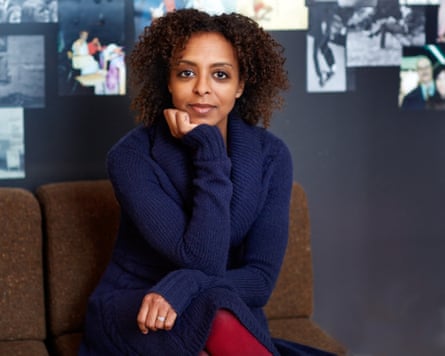
African writers are not the only victims of such questions – which, among other absurdities, assume that their identities are open to assessment by absolute strangers. In Vikram Chandra’s well-known essay “The Cult of Authenticity” (2000), he writes about a friend who attended a Delhi University syllabus revision committee:
[My] friend suggested Midnight’s Children and she was shouted down. Salman Rushdie isn’t Indian, the majority of the professors asserted. Amitav Ghosh, however, was found to be sufficiently Indian, and so his Shadow Lines was accepted into the canon. The issue was decided not on the basis of the relative merits of the books, but on the perceived Indianness of the authors, and by implication, the degree of their assimilation by the west.
Writing over 10 years apart, Mengiste and Chandra alert us to the same trend: the prioritisation of perceived cultural allegiance over creative output. The most scathing critique of the African writer is not that she is insufficiently talented, but that she is insufficiently African.
Why? It is no secret that Africa (like India) is the starting point of a modern diaspora. There are an estimated 1.6 million African immigrants in the US, a number that has doubled every decade since 1970. That many in this number should consider themselves both American and African doesn’t seem so controversial. Their African-ness may be peculiar to the diasporic experience, and their American-ness peculiar to the immigrant one, but they are legitimate identities, no less comprehensible for being multiple. Asked whether she considers herself Ethiopian or American, Mengiste said: “That’s like asking whether I am my mother’s child or my father’s.” She is Ethiopian and American. I am Ghanaian, Nigerian and cosmopolitan. We belong to Africa’s diaspora. We don’t need a panel discussion to suss out who we are.
But the wider literary establishment has trouble with writers who belong to diasporas. It doesn’t know where to put us. It can be unclear which team we are playing for: home or away, or neither? Our art is subjected to a particular kind of scrutiny; it is forced to play the role of anthropology. What Chandra described feeling in 2000, I lament in 2015; replace “Indian-ness” with “African-ness” and “Indians” with “Africans”, and Chandra’s words fit my woes to a tee:
I noticed the constant hum of this rhetoric, this anxiety about the anxiety of Indianness, this notion of a real reality that was being distorted by “third world cosmopolitans”, this fear of an all-devouring and all-distorting west. I heard it in conversations, in critical texts, in reviews. And Indians who wrote in English were one of the prime locations for this rhetoric to test itself, to make its declarations of power and belonging.
With African writers, as with Indian, the critical issue is control: who gets to control what diasporic writers write, which is to say, what global readers read.
2. What should the African writer write?
In November last year, I joined Chinelo Okparanta, author of the collection Happiness, Like Water, on a panel called “In This Way Comes Morning: New Writing of the West African Diaspora”. It was the second of a series. (Note: where the other six readings matched writers on the basis of their writing, for example Claire Vaye Watkins and Ruth Ozeki on “Weaving Fact into Fiction”, we were paired for our African-ness alone.) At the reception, Okparanta spoke of a reader who criticised her story “Runs Girl” for its depiction of a Nigerian hospital plagued by power outages. Okparanta, who lives in Maryland, spent weeks with her aunt in a Port Harcourt hospital; she explained that her description was accurate. The reader was implacable. “You’re writing poverty porn,” he insisted.
It’s a popular accusation these days. In May 2013, Bulawayo, who lives in California, published We Need New Names, a heartbreaking portrait of a Zimbabwean girl. The novel was shortlisted for the Man Booker prize, and appeared on many best books of the year lists – rightly so. I was shocked when, in his Guardian review, the Nigerian author Helon Habila (who lives in Washington) accused Bulawayo of “performing Africa”. By this he means “to inundate one’s writing with images … that evoke, to borrow a phrase from Aristotle, pity and fear, but not in a real tragic sense, more in a CNN, western-media-coverage-of-Africa, poverty-porn sense”. Habila ticks off the tragic images found in Bulawayo’s text – Aids, political violence, street children – then quips: “Did I mention that one of the children is pregnant after being raped by her grandfather?”
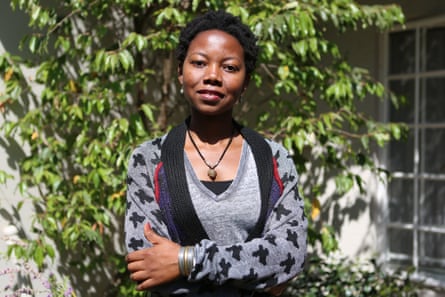
I was baffled. Anyone who knows even a bit about Zimbabwe’s recent history will affirm that Aids, political violence and street children were devastating features of its decline. Bulawayo, born and raised in Zimbabwe, has written a beautiful novel that tells some very ugly truths about things that she has seen first-hand. These are not truths about Africa the monolith, as Habila claimed, nor about the state of Zimbabwe in general, but truths of the life of one Zimbabwean character, Darling, and the worlds she inhabits. When my mother, a pediatrician and public health specialist in Ghana, read We Need New Names she said: “We need this book.” She has spent decades advocating for the rights of African children, examining how dysfunctional African governments disproportionally affect children, especially girls. For her, Bulawayo had told an important story honestly.
Of course, at no point in his review did Habila argue that Bulawayo is wrong about the ills plaguing Zimbabwe. His issue is not with her accuracy but what he imagines to be her animus, a “palpable anxiety to cover every ‘African’ topic; almost as if [she] had a checklist made from the morning’s news on Africa”. I share Habila’s contempt for western depictions of Africa; the news coverage of the Ebola epidemic is just one recent infuriating example. I understand that it is not enough to say, simply, that a story is true; a work of art exists in context and the context here is a culture that habitually promotes demeaning portrayals of Africa. What I don’t understand is what Habila and others would have the writer do. If poverty and violence exist in the country in which a novel is set, should the African novelist simply Photoshop them out? More than 50% of Africa’s population lives in poverty. Should their stories be erased from Africa’s literature?
Last year, Mũkoma Wa Ngũgĩ reviewed a new collection, Africa39: New Writing from Africa South of the Sahara, in the Los Angeles Review of Books. “To understand the aesthetics and political distance African literature has travelled between Things Fall Apart and Africa39,” he wrote, “one would have to think of it in those terms of mourning and melancholy, of inherited traumas and memories, which define the new African literary generation.”
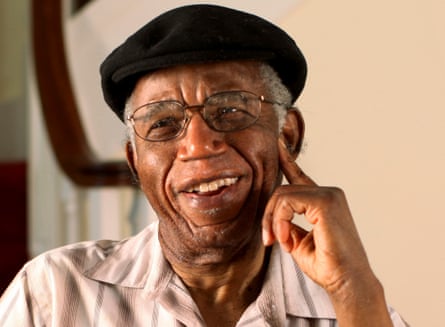
I was nodding along enthusiastically, taken by Wa Ngũgĩ’s notion of “a state of melancholy”, when I reached this: “To my ear, Chimamanda Ngozi Adichie’s story in Africa39 – set in the United States – suffers from an African, middle-class aesthetic that was also present in her latest novel, Americanah. This is an aesthetic that is so concerned with not telling a single story of poor, fly-infested Africans that it goes overboard into the academic halls of Princeton, of mansions, housemaids, and casually worn and perhaps ill‑gotten wealth.”
Damned if you do, damned if you don’t. While Bulawayo and Okparanta are criticised for airing Africa’s dirty laundry, Adichie is faulted for focusing on its finer linens. Why? An African middle class – small though it is, corrupt though it is often assumed to be – unquestionably exists. There are mansions and housemaids in certain parts of Nigeria, and African students at Ivy League schools, as Wa Ngũgĩ, a professor at Cornell, surely knows. In what way has Adichie gone “overboard”? How does her story “suffer” from being set in a world that exists? Americanah is celebrated in part because it paints so fabulously real a portrait of two contemporary Nigerian lovers. From Ifemelu’s childhood home in working-class Lagos to Obinze’s stint cleaning toilets in London, ther is no single class aesthetic on display.
To what is Wa Ngũgĩ objecting? If the African novelist is not meant to describe the experiences of impoverished Africans or those of privileged ones, is there some working-/middle-class sweet spot for which she should aim? Or is the problem not what she writes but for whom she is imagined to write it? Wa Ngũgĩ and Habila assume that Adichie and Bulawayo are writing for someone, either concerned not to tell that someone “a single story of poor, fly-infested Africans” or else “palpably anxious” to do the same. Neither critic imagines that the novelist has immersed herself fully in the world and the work of her fiction, attending with such care and wisdom to her characters that they cannot possibly be read as representations.
The African novelist is rarely granted the privilege of writing, as Toni Morrison famously put it, the novel she wanted to read. Instead, the novelist is assumed to be or accused of writing for the west, producing explanatory ethnographic texts dolled up as literary fiction. It’s a curious allegation, one that denies both the agency and artistry of the writer while threatening to obscure, I think, the actual source of the unease.
3. For whom is the African writer writing?
In November last year, Adaobi Nwaubani published an article entitled “African Books for Western Eyes” in the New York Times. Nwaubani is the first contemporary African writer to have got an international book deal while still living in her home country. Her article expresses, among other things, frustration with Africa’s publishing industry, a sentiment I share.
I am often asked why Ghana Must Go, a story about a Ghanaian-Nigerian family, was not published in Ghana or Nigeria. The answer is: we tried. Ghana, where my parents live, has no credible local publisher. To launch the novel in Accra, as I was determined to do, we had to go it alone. After an attempt to form a partnership with a bookshop failed (not wanting to pay the customs fees, they abandoned the shipment of books at the port), we organised two public events. After the book sold out, my mother ordered more directly from Penguin and sold them from her clinic.
I know of what Nwaubani speaks when she writes: “Any Nigerian in Anchorage who so wishes can acquire my novel. But here in my country [my] book is available only at a few bookstores.” Nigeria, which last year surpassed South Africa as Africa’s biggest economy, could subsidise a stable publishing house, distributing books to the entire continent. It is maddening that it doesn’t. It is unacceptable that African novelists cannot easily or profitably publish in African countries. But it does not follow that African novelists are writing for the west.
Can we really not imagine that the African novelist writes for love: love of craft, love of subject? Do we really believe that she is not an artist but an anthropologist, not a storyteller but a native informant? Would we really suggest that she hasn’t the right to engage a global audience? Many African novelists publish in the west because no alternative path to global readership exists. Even if it did – even if, say, I could have published in Ghana – I’d still want our books to travel the world. Touring Ghana Must Go, I had the most magical encounters with readers: Indian-Americans in New Jersey, Chinese-Americans in San Francisco, Nigerian-Americans in Texas, British West Africans in London, Turkish and Croatian immigrants in Germany, who recognised themselves in my characters. Are these readers “the west”? Did I write “what the white people wanted to read”?
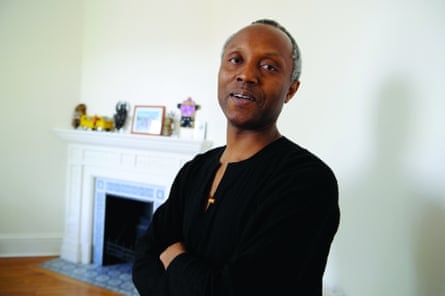
The Nigerian author Okey Ndibe has said: “We used to spend so much time agonising over the question of whether we were writing for the west. In retrospect I see our error. In Nigeria we grew up reading the west. The west was talking to us. Why shouldn’t the west read Nigeria? Why shouldn’t we talk back?”With his trademark ease Ndibe put his finger on my disquiet: the limitations imposed on African writers by their colleagues. Habila and Wa Ngugi would have read in Henry James’ Art of Fiction, “We must grant the artist his subject...our criticism is applied only to what he makes of it.” Beyond examining what the artist has made of her subject (street children, Princeton grads), the critics render inappropriate the subject itself. Nwaubani, in turn, is content to define ‘appropriate ways’ to describe those subjects. “A story about an African wife in the 1980s, for instance, should not show her comfortable with having only one child,” she writes. But who is this “African wife”? From which country does she hail? To what socioeconomic class does she belong? A generic “African wife in the 1980s” may belong in a sociological study but has no place in a novel of nuanced characters.
Taken together, these critiques become a set of edicts: here are the subjects you can write about (not too much poverty! not too much privilege!), here is the appropriate way to write about them. My problem with these rules is how they threaten to silence voices. The voice of the street child in Zimbabwe, the Nigerian grad student at Princeton … We need more stories about more subjects, more readers in more countries. Not fewer.
It is precisely because there are so few novels by African writers in global circulation that we ask those novels to do too much. No one novelist can bear the burden of representing a continent and no one novel should have to. The list at the beginning of this piece represents five of 55 countries, with no francophone, lusophone or, say, Central African writer in sight. Those on it are more or less socioeconomically homogenous: born, raised or granted degrees by universities in the west, and now living in or “between” western cities and African capitals. This is a problem. African books for global eyes must be written by a broader range of Africans, including those writing in non-European languages. Diasporic novelists such as Mengiste and Wa Ngũgĩ are doing wonderful work in bringing African writers who work in indigenous languages to global attention. With them, I share the heartbreak in Nwaubani’s words: “Some of the greatest African writers of my generation may never be discovered.”
We – African novelists, western publishers, global readers – must attend to this. We need more writers from more countries, representing more class backgrounds. We need more names.
Perhaps, then, we might grant more freedom to the ones we already have. As Henry James reminds us: “A novel is in its broadest definition a personal impression of life; that, to begin with, constitutes its value, which is greater or less according to the intensity of the impression. But there will be no intensity at all, and therefore no value, unless there is freedom to feel and say.” The diasporic novelist, as much as any other, must be granted that freedom.
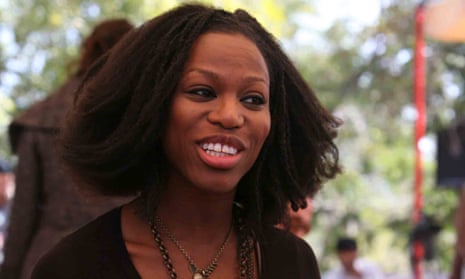
Comments (…)
Sign in or create your Guardian account to join the discussion